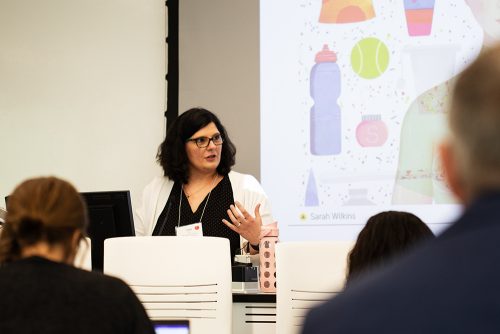Inaugural seed grant program will fund six collaborative projects to ‘address plastic pollution on a global scale’

KINGSTON, R.I. – Sept. 15, 2023 – The University of Rhode Island’s Plastics: Land to Sea initiative announced today over $200,000 in funding to six faculty research projects that will help to address the challenges posed by plastic pollution globally.
“The selection of these six projects for funding serves as a testament to URI’s diverse range of expertise in the field of plastics pollution,” said Dr. Vinka Oyanedel-Craver, director of the URI Plastics Initiative and professor and associate dean of research at URI’s College of Engineering. “Notably, faculty members from five colleges—business, engineering, environment and life sciences, pharmacy, and health sciences—will receive support, facilitating cutting-edge research that will generate crucial information for the development of sustainable and equitable approaches to address plastic pollution on a global scale.”
This article originally appeared through the University of Rhode Island’s Rhody Today on Sept. 9, 2023.


